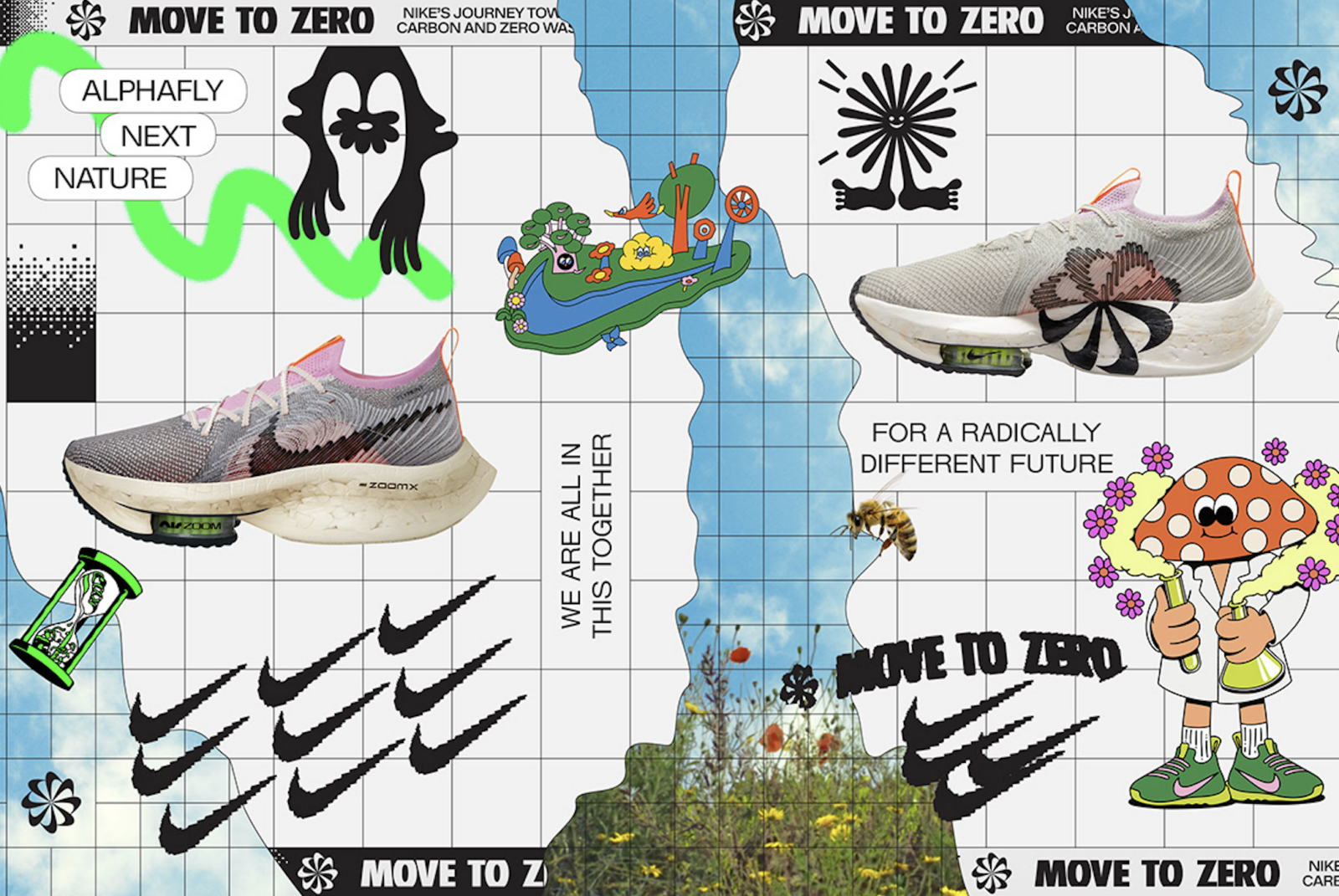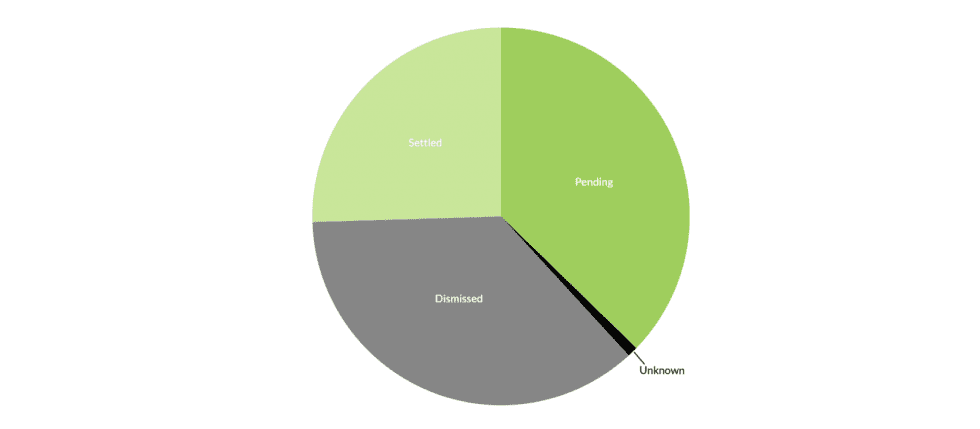
Greenwashing litigation has been making headlines in fashion and beyond, with H&M, Allbirds, Nike, and Canada Goose being among some of the big-name companies that have been targeted with lawsuits as a result of their focus on sustainability or broader ESG claims (think: the use of product/service claims in the vein of “sustainable,” “green,” “eco-friendly,” “conscious,” etc.) in their advertising campaigns. Not limited to apparel and footwear, of course, food and beverage companies are seeing an influx of such lawsuits. And Bloomberg’s Matt Levine noted the rise of such suits in the tech space not too long ago, citing Norton Rose, which attributed at least some of this to the California plaintiffs’ bar “figur[ing] out the blueprint for how to bring these cases.” The law firm characterized greenwashing litigation as among the “areas of future concern” for companies when it comes to class action cases.
As the threat of litigation has become increasingly more real for companies that are making sustainability and/or ESG-focused marketing claims, advertising watchdog Truth in Advertising (“TINA”) tracked more than 100 lawsuits accusing companies of making misleading environmental claims – or “greenwashing” – to provide a snapshot of the state of litigation in this space. Setting the stage in its report, TINA asserts that the majority of the sustainability-centric class-action lawsuits that have been filed in the U.S. allege that companies are making “deceptive environmental claims using words and phrases, such as environmentally friendly, recyclable and sustainable” in their advertising – from the contents of ad campaigns to claims made on products, themselves, and/or their labeling and packaging.
At the same time, other lawsuits in this realm have alleged that companies are misleading consumers about the “green” credentials of their products/services by using “eco-friendly” imagery. For example: Nike is currently facing a false advertising lawsuit, in which it is accused of deceptively marketing itself/its products as being environmentally friendly by way of marketing, advertisements, and social media for its “Sustainability” collection products that “centers around ‘green’ imagery with models and cartoon characters surrounded by lots of flowers and plush green plants,” among other things. In a separate suit, H&M was named in a since-dismissed case for allegedly pushing its “false” sustainability narrative via green-hued hangtags; statements on its website about its supposed sustainability credentials; and “marketing, advertisements, and social media” campaigns that “center around ‘green’ imagery of Conscious-clad models surrounded by lots of grass and plush green plants.”)
Breaking down the greenwashing class-action lawsuits that have been filed in the U.S. since 2015, which is when it began tracking these cases, TINA found that at least 30 percent of the lawsuits have alleged false and/or misleading environmentally friendly, earth friendly, eco-friendly or environmentally responsible claims. 18 percent have alleged false and/or misleading sustainable claims; 14 percent have alleged false and/or misleading recyclable claims; 11 percent have alleged false and/or misleadingly compostable or biodegradable claims; and 5 percent have alleged false and/or misleading carbon reduction claims.
Of those lawsuits, 15 percent concern personal care products and cosmetics. In one such suit, Sephora is being accused of “manufactur[ing], label[ing], market[ing], certify[ing] and/or sell[ing] cosmetics advertised as ‘Clean’ – when no shortage of the products contain ingredients that are “inconsistent with how consumers understand” the term “clean,” and thereby, engaging in false advertising and breaching warranties that it has made to consumers in connection with those products.
Meanwhile, 10 percent relate to clothing and textiles. These complaints have alleged that Nike, H&M, Canada Goose, and REI falsely market clothing as sustainable; Walmart and Kohl’s falsely advertise products as environmentally friendly because they are made of bamboo when they are actually made of rayon, the manufacturing of which emits hazardous pollutants into the air; and Allbirds misleadingly claims that its running shoes have a “Low Carbon Footprint.”
Geographically speaking, TINA found that greenwashing class-action lawsuits have been filed in 15 states, with almost half of the complaints (49) being filed in California. The remaining lawsuits were filed in Florida, Illinois, Louisiana, Massachusetts, Michigan, Minnesota, Missouri, Montana, New Jersey, New Mexico, New York, Pennsylvania, Washington, and Wisconsin.

A KEY TAKEAWAY: While companies’ climate claims and other sustainability-focused marketing may have been met with relatively lax regulation in the past, that may not prove to be the case going forward in light of rising attention to – and scrutiny of – such ESG and climate-related marketing by a growing pool of investors, regulators, and lawmakers, alike. The U.S. Securities and Exchange Commission, for instance, has proposed a rule mandating that publicly-listed companies disclose emissions that are “material” or that are relevant to companies’ emissions targets, among other things, thereby, potentially upping the stakes for companies to make good on their pledges. Meanwhile, the Federal Trade Commission (“FTC”) is revisiting its “Green Guides,” which are aimed at helping marketers to avoid making misleading environmental claims, in a move that is expected to provide more emphasis on things like carbon neutrality and carbon offsets.
In light of rising regulator attention and consumer-initiated litigation, the stakes for companies are higher than ever, as they are forced to balance consumer and investor demands for public stances on issues related to ESG and the climate crisis (and peer pressure as a growing number of companies across industries are making public climate pledges) with the rising risk that they might face legal ramifications should they not be able to substantiate their claims and/or not meet their targets. This is only compounded by the fact that “we are getting beyond [the point] where companies can just make some lofty claim” on the climate front, according to Gilman Callsen, founder and CEO of Rho Impact, an ESG planning, consulting and reporting company. “People are more and more looking at that as greenwashing and actually expecting companies to have some actual data behind it.”
– Published Courtesy of Fashion Law


Leave a Reply